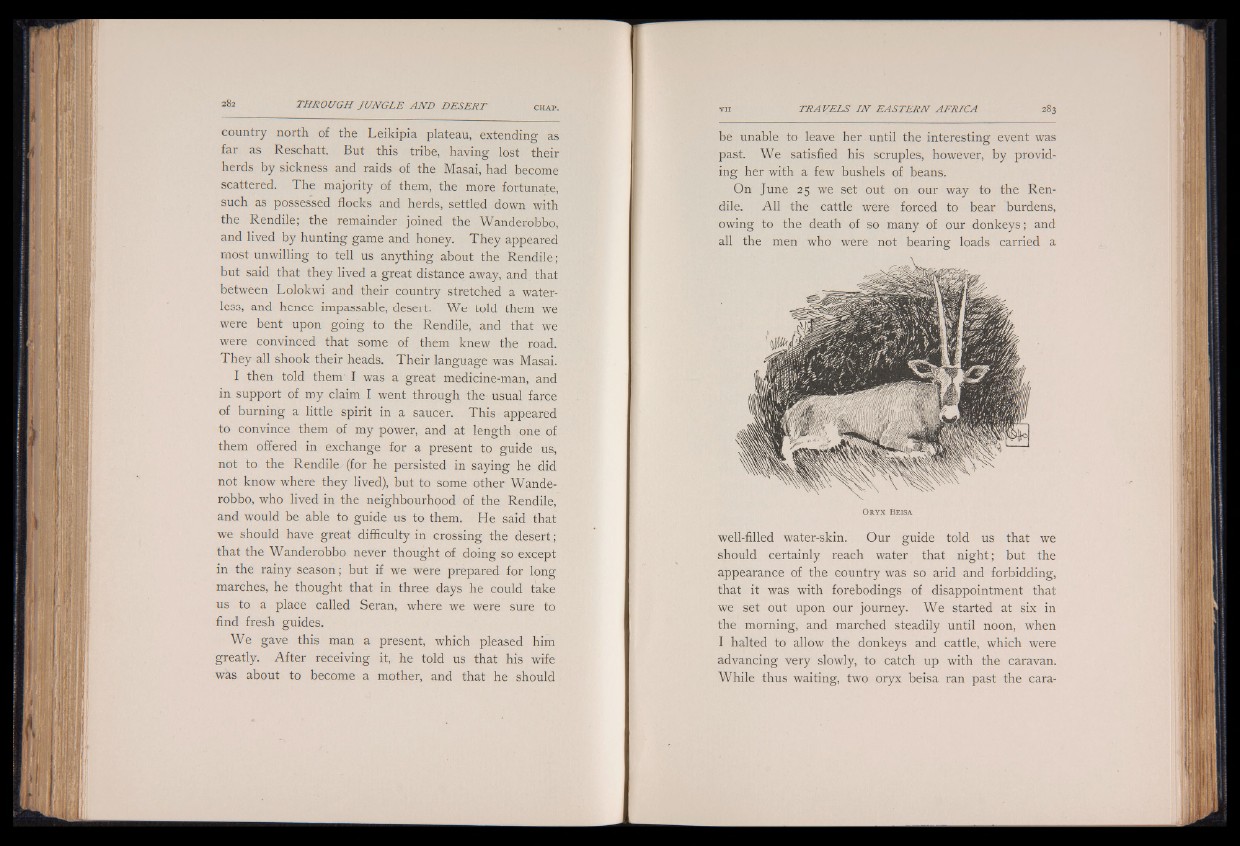
country north of the Leikipia plateau, extending as
far as Reschatt. But this tribe, having lost their
herds by sickness and raids of the Masai, had become
scattered. The majority of them, the more fortunate,
such as possessed flocks and herds, settled down with
the Rendile; the remainder joined the Wanderobbo,
and lived by hunting game and honey. They appeared
most unwilling to tell us anything about the Rendile;
but said that they lived a great distance away, and that
between Lolokwi and their country stretched a waterless,
and hence impassable, desert. We told them we
were bent upon going to the Rendile, and that we
were convinced that some of them knew the road.
They all shook their heads. Their language was Masai.
I then told them' I was a great medicine-man, and
in support of my claim I went through the usual farce
of burning a little spirit in a saucer. This appeared
to convince them of my power, and at length one of
them offered in exchange for a present to guide us,
not to the Rendile (for he persisted in saying he did
not know where they lived), but to some other Wanderobbo,
who lived in the neighbourhood of the Rendile,
and would be able to guide us to them. He said that
we should have great difficulty in crossing the desert;
that the Wanderobbo never thought of doing so except
in the rainy season; but if we were prepared for long
marches, he thought that in three days he could take
us to a place called Seran, where we were sure to
find fresh guides.
We gave this man a present, which pleased him
greatly. After receiving it, he told us that his wife
was about to become a mother, and that he should
unable to leave her until the interesting event was
past. We satisfied his scruples, however, by providing
her with a few bushels of beans.
On June 25 we set out on our way to the Rendile.
All the cattle were forced to bear burdens,
owing to the death of so many of our donkeys;- and
all the men who were not bearing loads carried a
O r y x B e isa
well-filled water-skin. Our guide told us that we
should certainly reach water that night; but the
appearance of the country was so arid and forbidding,
that it was with forebodings of disappointment that
we set out upon our journey. We started at six in
the morning, and marched steadily until noon, when
I halted to allow the donkeys and cattle, which were
advancing very slowly, to catch up with the caravan.
While thus waiting, two oryx beisa ran past the carabe